This blog post is about the value of using case studies and Generative Artificial Intelligence (GAI), including ChatGPT, for practical and effective learning for student affairs professionals, student leaders, and programs for undergraduate and graduate programs.
Over the past few years, I have been a judge for a national virtual student affairs-focused case study competition. I recently completed this year’s competition, which inspired me to explore new ways of generating case studies for student affairs professionals. Additionally, I have been a mentor for the NASPA Undergraduate Fellowship Program (NUFP) for the past eight years, working with undergraduate students from underrepresented communities who are interested in pursuing student affairs as a career. As a staff advisor for student organizations for the last two decades, I have advised student leaders in navigating challenging scenarios; these scenarios are expected as they consistently appear every year, but some scenarios are unique for that particular year.
These experiences, coupled with my interest in the potential of ChatGPT in higher education, led me to consider how Generative AI, like ChatGPT, can be used to create student affairs-focused case studies for undergraduate fellows, graduate programs, student leaders, advisors, and student affairs professionals.
The Value of a Well-Designed Case Study
A well-designed case study is an invaluable learning tool, especially in student affairs. It provides students and professionals with a realistic scenario that allows them to apply their knowledge, skills, and critical thinking abilities to real-life situations. This kind of experiential learning fosters a deeper understanding of theories and concepts, encourages reflection, and promotes the development of problem-solving skills.
Using ChatGPT to Generate Student Affairs Case Studies
ChatGPT, developed by OpenAI, is a powerful language model demonstrating its capacity to generate human-like text based on given inputs. By leveraging the capabilities of ChatGPT, we can generate a wide range of student affairs-focused case studies tailored to specific learning objectives and outcomes. These case studies can be used in various educational settings, such as classrooms, workshops, and professional development programs.
Below are some ways ChatGPT-generated case studies can benefit student affairs professionals and students:
- Customization: ChatGPT allows educators and professionals to customize case studies based on their needs, goals, and contexts. This means that case studies can be tailored to address the unique challenges and situations most relevant to a particular group of learners or professionals.
- Variety: With ChatGPT, we can generate various case studies to expose learners to various issues and scenarios. This variety provides learners with new scenarios instead of those presented with the same problems and contexts that may need to be updated or relevant today.
- Time and Cost Efficiency: Creating case studies can be time-consuming and costly. ChatGPT streamlines the process by generating case studies quickly and efficiently, allowing educators and professionals to focus on other essential aspects of their work. It is important to note that the generated case studies may need to be modified for accuracy and more details.
- Adaptability: As the field of student affairs continues to evolve, ChatGPT-generated case studies can be easily adapted and updated to reflect new trends, challenges, and best practices, ensuring that learners are constantly engaged with the most current and relevant material.
Here are examples of case studies generated by ChatGPT:
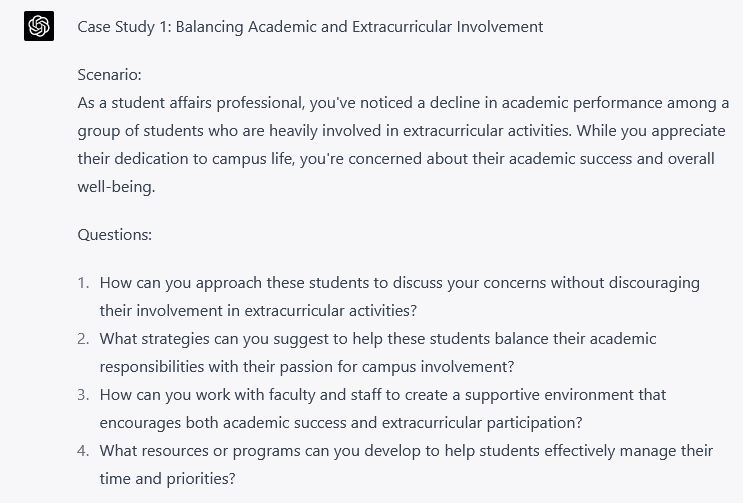
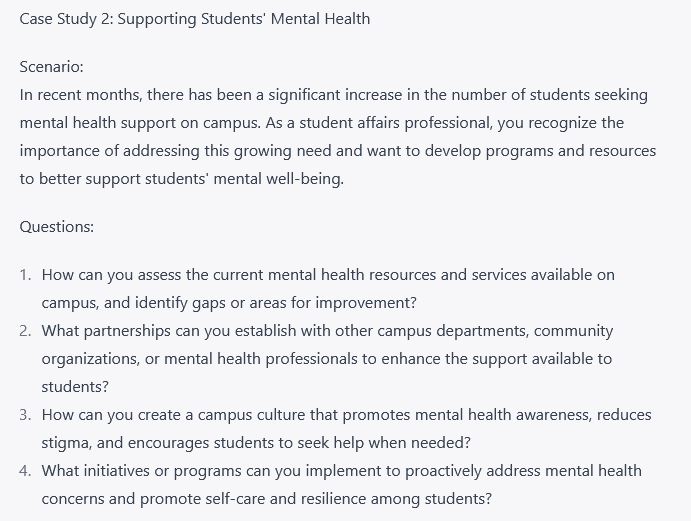
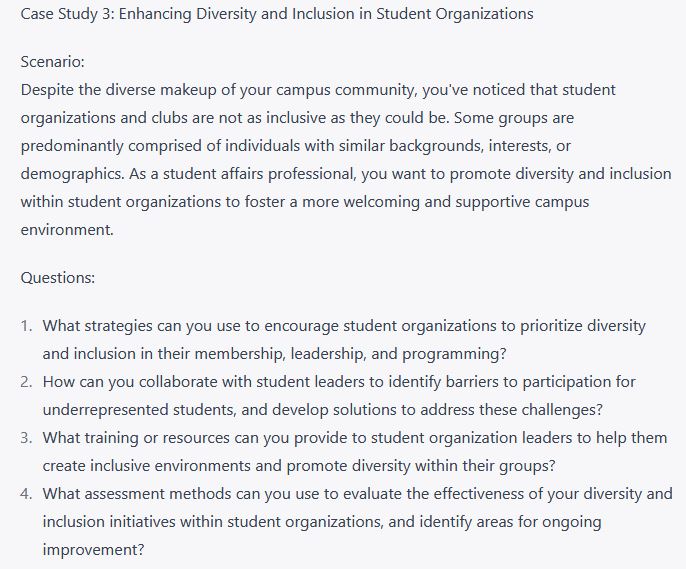
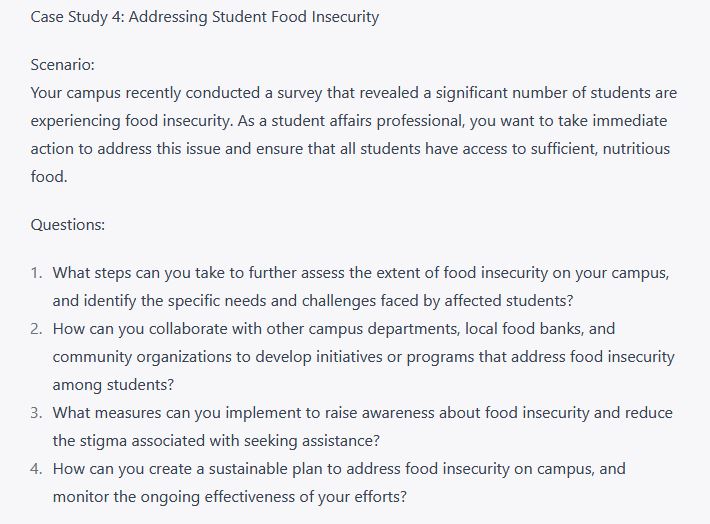
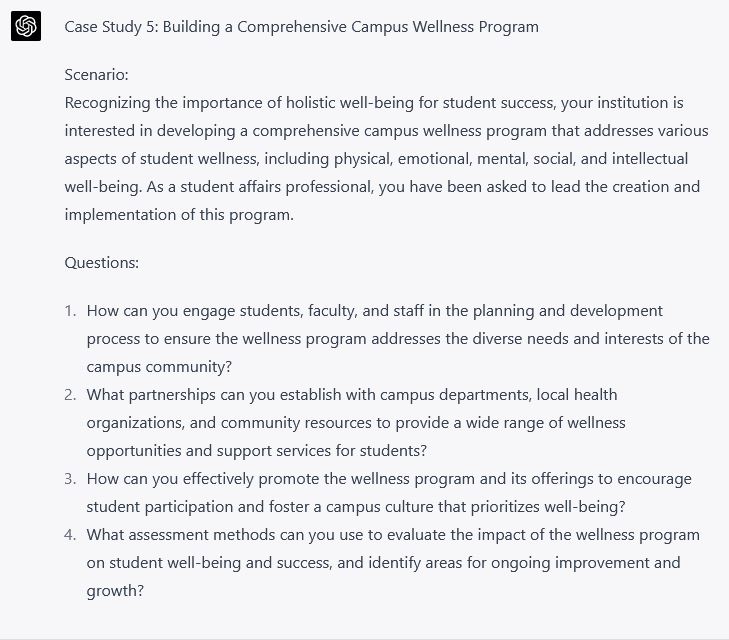
Conclusion
As the needs of our students and the nature of our work as student affairs professionals evolve, we must continue to explore and embrace new technologies and methodologies that enhance our ability to educate and prepare the next generation of student affairs professionals. The integration of ChatGPT in generating student affairs-focused case studies holds the potential to enrich the learning experiences of students and professionals alike.